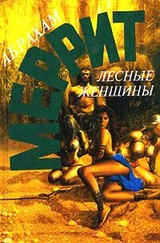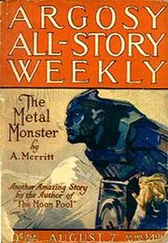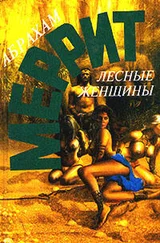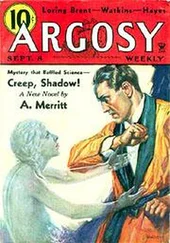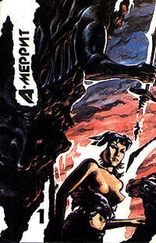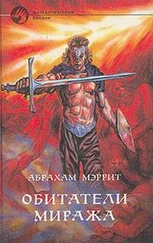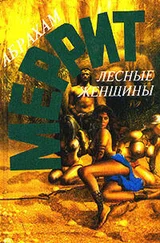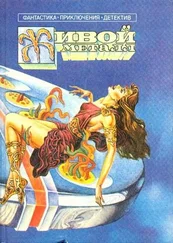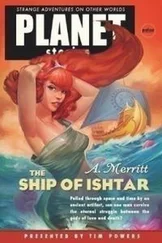Абрахам Меррит - Burn, Witch, Burn!
Здесь есть возможность читать онлайн «Абрахам Меррит - Burn, Witch, Burn!» весь текст электронной книги совершенно бесплатно (целиком полную версию без сокращений). В некоторых случаях можно слушать аудио, скачать через торрент в формате fb2 и присутствует краткое содержание. Год выпуска: 1932, Жанр: Ужасы и Мистика, на английском языке. Описание произведения, (предисловие) а так же отзывы посетителей доступны на портале библиотеки ЛибКат.
- Название:Burn, Witch, Burn!
- Автор:
- Жанр:
- Год:1932
- ISBN:нет данных
- Рейтинг книги:4 / 5. Голосов: 1
-
Избранное:Добавить в избранное
- Отзывы:
-
Ваша оценка:
- 80
- 1
- 2
- 3
- 4
- 5
Burn, Witch, Burn!: краткое содержание, описание и аннотация
Предлагаем к чтению аннотацию, описание, краткое содержание или предисловие (зависит от того, что написал сам автор книги «Burn, Witch, Burn!»). Если вы не нашли необходимую информацию о книге — напишите в комментариях, мы постараемся отыскать её.
Burn, Witch, Burn! — читать онлайн бесплатно полную книгу (весь текст) целиком
Ниже представлен текст книги, разбитый по страницам. Система сохранения места последней прочитанной страницы, позволяет с удобством читать онлайн бесплатно книгу «Burn, Witch, Burn!», без необходимости каждый раз заново искать на чём Вы остановились. Поставьте закладку, и сможете в любой момент перейти на страницу, на которой закончили чтение.
Интервал:
Закладка:
as I could see to support it-irritated me.
"You're a better man than I am, Sherlock Holmes," I said sarcastically. He flushed, but repeated
stubbornly:
"They were murdered."
"La strega!" whispered Ricori. I glared at him.
"Quit beating around the bush, Braile. What's your evidence?"
"You were away from Peters almost two hours; I was with him practically from start to finish. As I
studied him, I had the feeling that the whole trouble was in the mind-that it was not his body, his nerves,
his brain, that refused to function, but his will. Not quite that, either. Put it that his will had ceased to care
about the functions of the body-and was centered upon killing it!"
"What you're outlining now is not murder but suicide. Well, it has been done. I've watched a few die
because they had lost the will to live-"
"I don't mean that," he interrupted. "That's passive. This was active-"
"Good God, Braile!" I was honestly shocked. "Don't tell me you're suggesting all eight passed from the
picture by willing themselves out of it-and one of them only an eleven-year-old child!"
"I didn't say that," he replied. "What I felt was that it was not primarily Peters' own will doing it, but
another's will, which had gripped his, had wound itself around, threaded itself through his will. Another's
will which he could not, or did not want to resist-at least toward the end."
"La maledetta strega!" muttered Ricori again.
I curbed my irritation and sat considering; after all, I had a wholesome respect for Braile. He was too
good a man, too sound, for one to ride roughshod over any idea he might voice.
"Have you any idea as to how these murders, if murders they are, were carried out?" I asked politely.
"Not the slightest," said Braile.
"Let's consider the murder theory. Ricori, you have had more experience in this line than we, so listen
carefully and forget your witch," I said, brutally enough. "There are three essential factors to any
murder-method, opportunity, motive. Take them in order. First-the method.
"There are three ways a person can be killed by poison or by infection: through the nose-and this
includes by gases-through the mouth and through the skin. There are two or three other avenues.
Hamlet's father, for example, was poisoned, we read, through the ears, although I've always had my
doubts about that. I think, pursuing the hypothesis of murder, we can bar out all approaches except
mouth, nose, skin-and, by the last, entrance to the blood can be accomplished by absorption as well as
by penetration. Was there any evidence whatever on the skin, in the membranes of the respiratory
channels, in the throat, in the viscera, stomach, blood, nerves, brain-of anything of the sort?"
"You know there wasn't," he answered.
"Quite so. Then except for the problematical lighted corpuscle, there is absolutely no evidence of method.
Therefore we have absolutely nothing in essential number one upon which to base a theory of murder.
Let's take number two-opportunity.
"We have a tarnished lady, a racketeer, a respectable spinster, a bricklayer, an eleven-year-old
schoolgirl, a banker, an acrobat and a trapeze performer. There, I submit, is about as incongruous a
congregation as is possible. So far as we can tell, none of them except conceivably the circus men-and
Peters and the Darnley woman-had anything in common. How could anyone, who had opportunity to
come in close enough contact to Peters the racketeer to kill him, have equal opportunity to come in
similar close contact with Ruth Bailey, the Social Registerite maiden lady? How could one who had found
a way to make contact with banker Marshall come equally close to acrobat Standish? And so on-you
perceive the difficulty? To administer whatever it was that caused the deaths-if they were murder-could
have been no casual matter. It implies a certain degree of intimacy. You agree?"
"Partly," he conceded.
"Had all lived in the same neighborhood, we might assume that they might normally have come within
range of the hypothetical killer. But they did not-"
"Pardon me, Dr. Lowell," Ricori interrupted, "but suppose they had some common interest which brought
them within that range."
"What possible common interest could so divergent a group have had?"
"One common interest is very plainly indicated in these reports and in what McCann has told us."
"What do you mean, Ricori?"
"Babies," he answered. "Or at least-children."
Braile nodded: "I noticed that."
"Consider the reports," Ricori went on. "Miss Bailey is described as charitable and devoted to children.
Her charities, presumably, took the form of helping them. Marshall, the banker, was interested in
child-welfare. The bricklayer, the acrobat and the trapeze performer had children. Anita was a child.
Peters and the Darnley woman were, to use McCann's expression, 'daffy' over a baby."
"But," I objected, "if they are murders, they are the work of one hand. It is beyond range of possibility
that all of the eight were interested in one baby, one child, or one group of children."
"Very true," said Braile. "But all could have been interested in one especial, peculiar thing which they
believed would be of benefit to or would delight the child or children to whom each was devoted. And
that peculiar article might be obtainable in only one place. If we could find that this is the fact, then
certainly that place would bear investigation."
"It is," I said, "undeniably worth looking into. Yet it seems to me that the common-interest idea works
two ways. The homes of those who died might have had something of common interest to an individual.
The murderer, for example, might be a radio adjuster. Or a plumber. Or a collector. An electrician, and
so and so on."
Braile shrugged a shoulder. Ricori did not answer; he sat deep in thought, as though he had not heard me.
"Please listen, Ricori," I said. "We've gotten this far. Method of murder-if it is murder-unknown.
Opportunity for killing-find some person whose business, profession or what not was a matter of interest
to each of the eight, and whom they visited or who visited them; said business being concerned, possibly,
in some way with babies or older children. Now for motive. Revenge, gain, love, hate, jealousy,
self-protection? None of these seems to fit, for again we come to that barrier of dissimilar stations in life."
"How about the satisfaction of an appetite for death-wouldn't you call that a motive?" asked Braile,
oddly. Ricori half rose from his chair, stared at him with a curious intentness; then sank back, but I
noticed he was now all alert.
"I was about to discuss the possibility of a homicidal maniac," I said, somewhat testily.
"That's not exactly what I mean. You remember Longfellow's lines:
'I shot an arrow into the air.
It fell to earth I know not where.'
"I've never acquiesced in the idea that that was an inspired bit of verse meaning the sending of an argosy
to some unknown port and getting it back with a surprise cargo of ivory and peacocks, apes and
precious stones. There are some people who can't stand at a window high above a busy street, or on top
of a skyscraper, without wanting to throw something down. They get a thrill in wondering who or what
will be hit. The feeling of power. It's a bit like being God and unloosing the pestilence upon the just and
the unjust alike. Longfellow must have been one of those people. In his heart, he wanted to shoot a real
arrow and then mull over in his imagination whether it had dropped in somebody's eye, hit a heart, or just
Читать дальшеИнтервал:
Закладка:
Похожие книги на «Burn, Witch, Burn!»
Представляем Вашему вниманию похожие книги на «Burn, Witch, Burn!» списком для выбора. Мы отобрали схожую по названию и смыслу литературу в надежде предоставить читателям больше вариантов отыскать новые, интересные, ещё непрочитанные произведения.
Обсуждение, отзывы о книге «Burn, Witch, Burn!» и просто собственные мнения читателей. Оставьте ваши комментарии, напишите, что Вы думаете о произведении, его смысле или главных героях. Укажите что конкретно понравилось, а что нет, и почему Вы так считаете.

![Абрахам Меррит - Лунный бассейн [Лунная заводь]](/books/20623/abraham-merrit-lunnyj-bassejn-lunnaya-zavod-thumb.webp)
